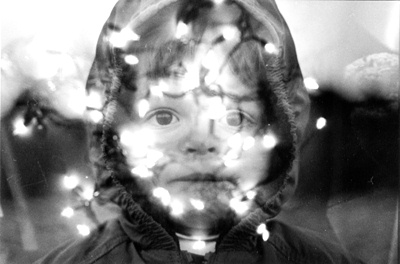All Nonfiction
- Bullying
- Books
- Academic
- Author Interviews
- Celebrity interviews
- College Articles
- College Essays
- Educator of the Year
- Heroes
- Interviews
- Memoir
- Personal Experience
- Sports
- Travel & Culture
All Opinions
- Bullying
- Current Events / Politics
- Discrimination
- Drugs / Alcohol / Smoking
- Entertainment / Celebrities
- Environment
- Love / Relationships
- Movies / Music / TV
- Pop Culture / Trends
- School / College
- Social Issues / Civics
- Spirituality / Religion
- Sports / Hobbies
All Hot Topics
- Bullying
- Community Service
- Environment
- Health
- Letters to the Editor
- Pride & Prejudice
- What Matters
- Back
Summer Guide
- Program Links
- Program Reviews
- Back
College Guide
- College Links
- College Reviews
- College Essays
- College Articles
- Back
Psyched Out! Misdiagnosis and Over-diagnosis in Child Psychiatry
“I have ADHD.” “I am bipolar.” “I am depressed.” Sound familiar? Chances are you have heard them coming out of your own mouth, someone you know, or from a stranger. Sometimes I have used these phrases. Though these words are said in a casual way, they have a significance attached to them that society overlooks. Attention deficit-hyperactivity disorder (ADHD), bipolar disorder, depression, are not just mere words, they are mental disorders. Mental disorders, mental illness, mental disease, different words, same meaning, abnormality of the mind. Do you picture craziness, hair sticking out, eyes roaming around, hands shackled to a bed post, legs kicking about, and a mouth relentlessly screaming? Well, this would be the case centuries ago, people who had lost their marbles and needed to be locked away. However, in the twenty-first century, “madness” has evolved into about three-hundred mental disorders. Therefore, about three-hundred medications for treatment…right? Who knows? What is known is that millions of children and adolescents are suffering from at least one, in most cases more than one, of about three-hundred mental disorders. The truth is the disorder is either misdiagnosed or over-diagnosed. The worst part, a diagnosis might or might not lead to treatment, either way the future looks bleak.
I am sixteen years old, and anything and everything related to medicine is a discomfort. Doctor appointments are a cause of stress, needles are cause of distress, medication is the last resort, and doctors are foes. Did I mention I was sixteen? Imagine this, a six year old child who is living a life dependent on medication. To that child, taking medication is not a choice, but a necessity. How did this child become a captive of pharmaceutical drugs? The journey began with a doctors' visit, and in less than a few hours, the child's parent was walking out of the doctors' office with a diagnosis of a mental disorder, and a prescription slip to be fulfilled. Crazy, right? No, it is reality. Though this scenario is not the case for all young patients who suffer from mental illness and depend on drugs to be "normal", it is very similar. In the field of child psychiatry, there lie numerous issues. Inequity is the standard for patients. There is a possibility that the doctor who diagnosed the disorder was influenced by the perks given by the pharmaceutical company who pays the doctor to endorse their medication. Maybe, given that the current system of mental health care is outdated and has many loopholes, the doctor decided to take a chance with the patient and treat the disorder on a trial-by-trial basis. Do not forget to consider the fact pharmaceutical drugs provided to young mentally-ill children are barely tested for long-term effects. No parent wants to subject their child for drug testing, but the medicine has evolved to the point that a child is not needed for the testing of the drugs. I got it! Mental disorders cannot be seen or felt, so they do not exist, right? So this why society does not consider mental disorders on the same scale physical disorders, they are nominal. Guess what, mental disorders do exist, millions of children are misdiagnosed and over-diagnosed with them, and this is affecting society as a whole, directly and indirectly.
Child psychiatry is in a perilous position; if misdiagnosis and over-diagnosis of mentally-ill children remains unresolved, a generation of drug induced citizens is inevitable. The incessant increase of medicated mentally-ill children is an indication that misdiagnosis and over-diagnosis in child psychiatry is occurring at a problematic pace. Drugs are affordable, they consume little or no time, they cause no damage to reputations or egos, but the fact of the matter is that the risks outweigh the benefits. Although drugs are a quick fix, their consequences are long term and life-threatening, and children’s lives ought to not be in jeopardy given that treatments such as therapy exist. In-order for these issues to diminish, all aspects of the psychiatric world have to be inspected; the health care system modernized, health care professionals investigated, pharmaceutical companies scrutinized, pharmaceutical medication studied, and patients aided. Mental disorders are not labels, “I have OCD, I have insomnia, I am anorexic”; they are a way of life. Society has the opportunity to spare millions of mentally-ill children the prospect of living a life dependent on drugs; it is time for the whole world to take in to consideration the mental health of our future generations.

Similar Articles
JOIN THE DISCUSSION
This article has 0 comments.
